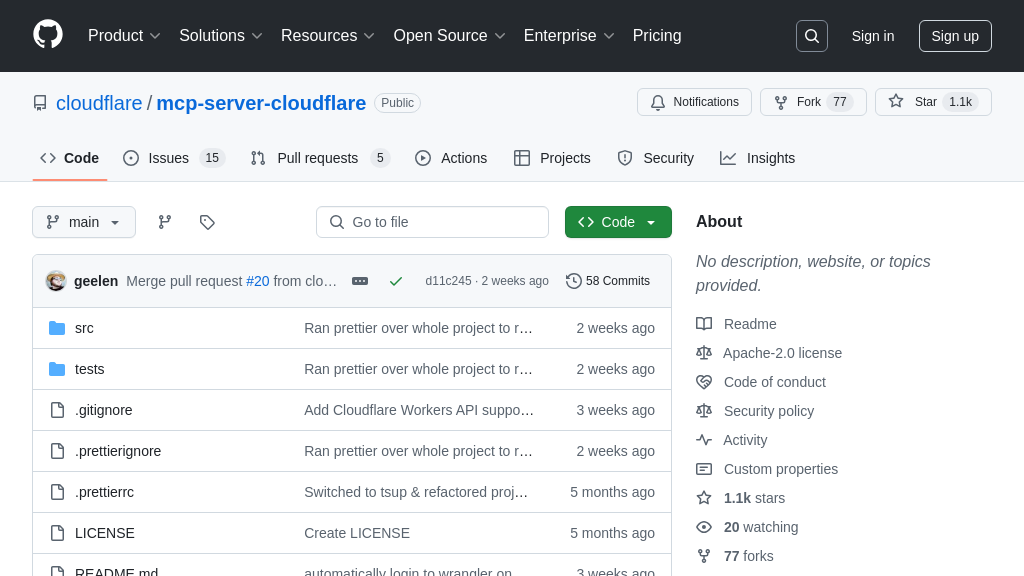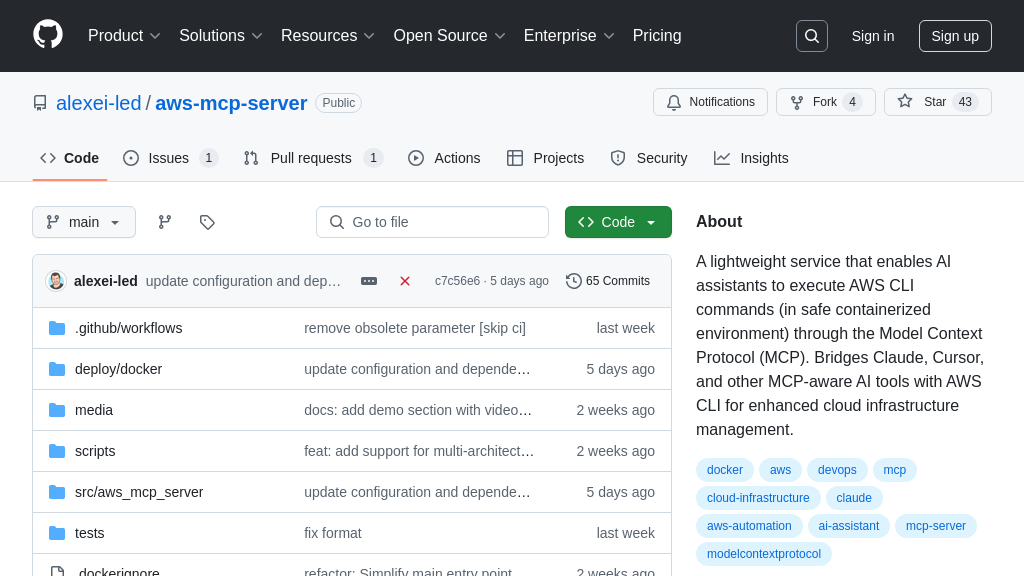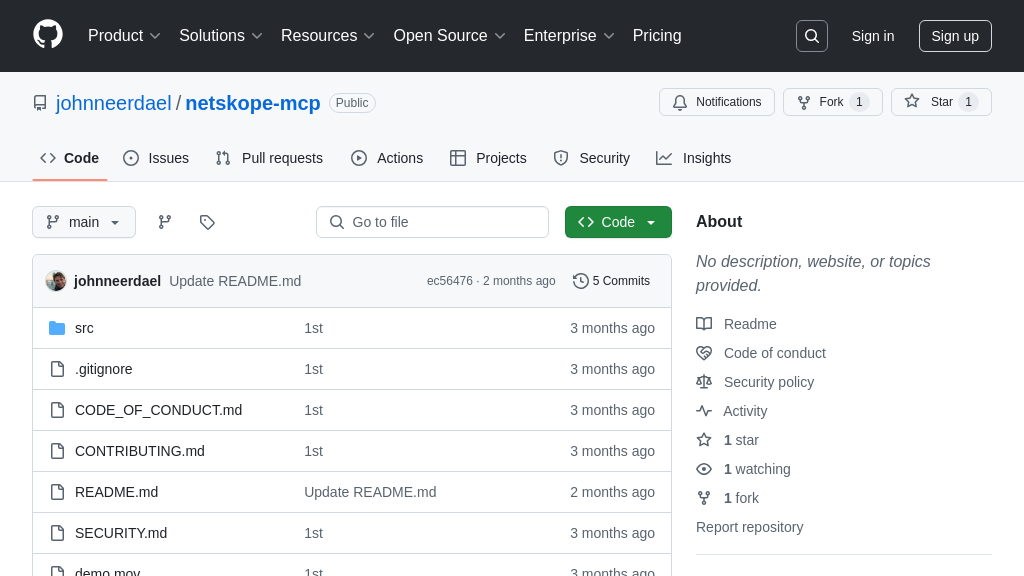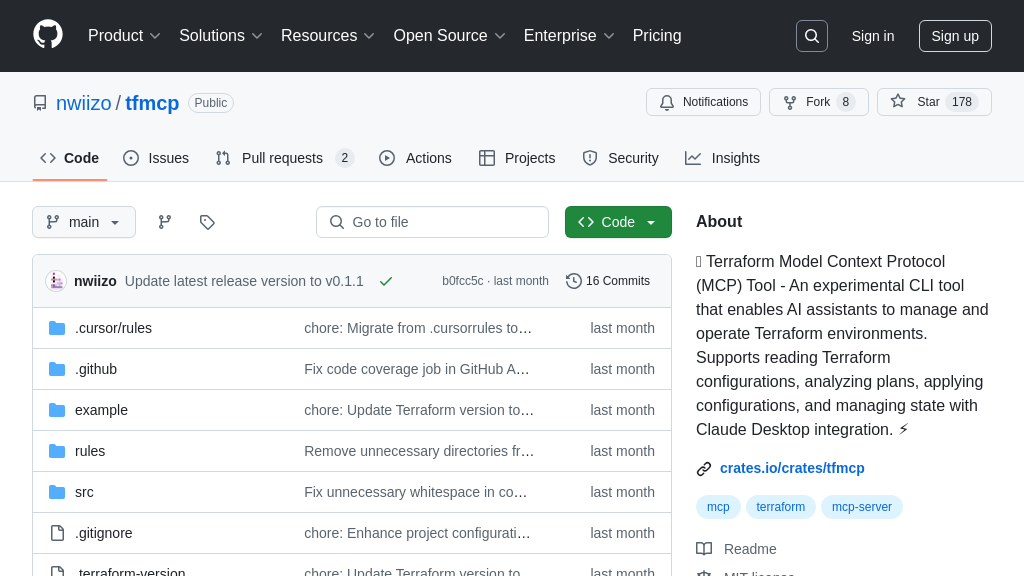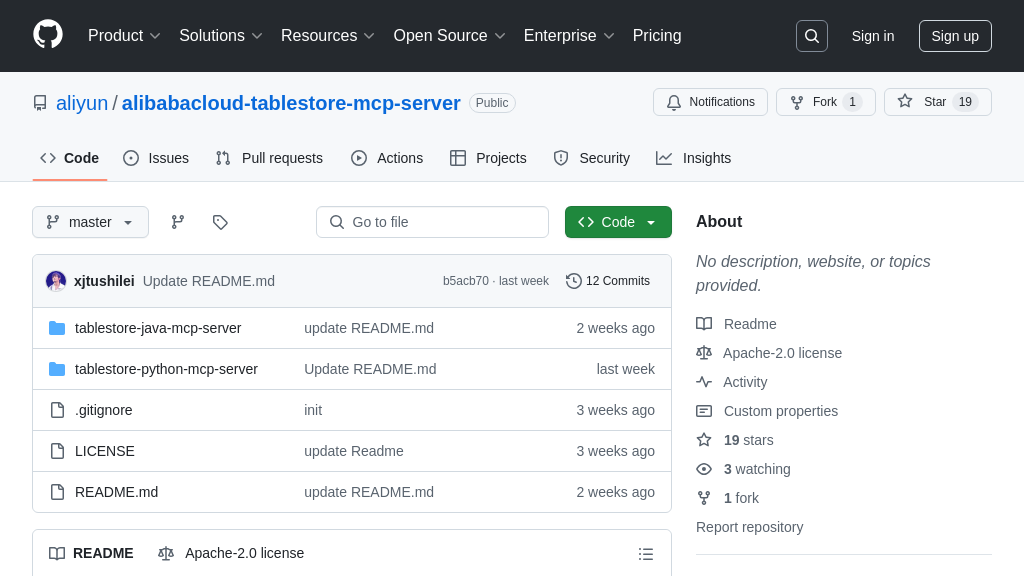dbhub
DBHub: Universal database MCP server for AI model integration with multiple databases.
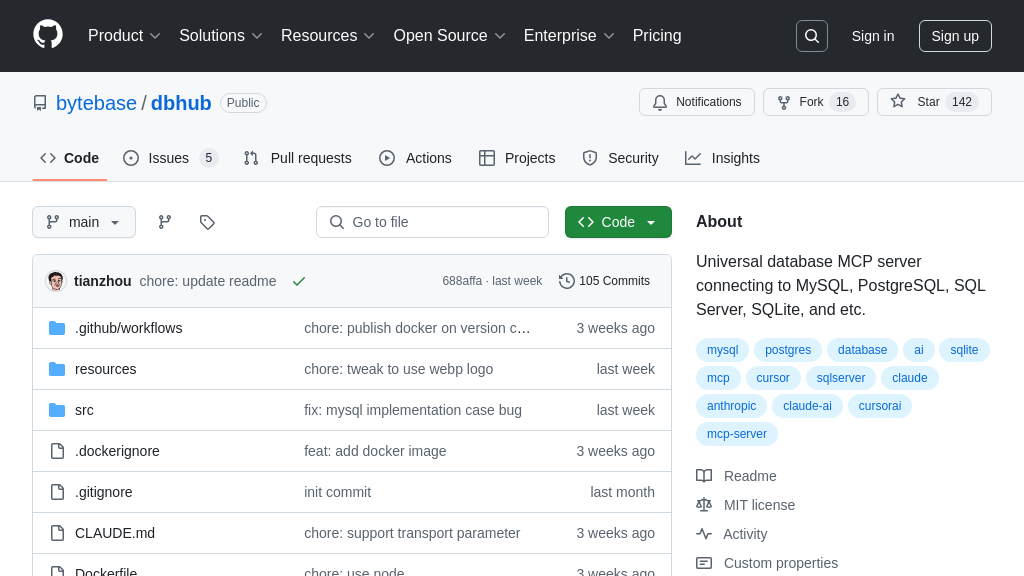
dbhub Solution Overview
DBHub is a versatile MCP Server, acting as a universal gateway for AI models to access and explore various databases. It seamlessly connects MCP-compatible clients like Claude Desktop and Cursor to databases such as PostgreSQL, SQL Server, SQLite, and MySQL. DBHub empowers developers to build AI-powered applications that can directly interact with and extract insights from diverse data sources.
Key features include broad database support, demo mode for easy testing with a sample employee database, and multiple transport options like stdio and sse. By implementing the MCP server interface, DBHub simplifies the integration process, allowing AI models to query, analyze, and understand data without complex, custom integrations. This streamlined approach accelerates development and unlocks the potential of AI-driven data analysis across different database systems. You can quickly deploy DBHub using Docker or NPM.
dbhub Key Capabilities
Universal Database Connectivity
DBHub acts as a versatile gateway, enabling AI models to interact with a wide array of database systems, including PostgreSQL, MySQL, SQL Server, and SQLite. This eliminates the need for AI clients to implement individual database connectors, simplifying integration and broadening the scope of data sources accessible to AI models. By providing a unified interface, DBHub allows developers to focus on AI application logic rather than database-specific intricacies. This feature is particularly valuable in scenarios where AI models need to draw insights from diverse data silos within an organization. For example, an AI-powered customer service chatbot can access customer data from a PostgreSQL database, sales data from a MySQL database, and product information from a SQLite database, all through a single DBHub connection. DBHub supports standard database connection strings (DSN) for easy configuration.
MCP Server Implementation
As a fully compliant MCP Server, DBHub seamlessly integrates with MCP-compatible clients like Claude Desktop and Cursor. This allows AI models to leverage the standardized Model Context Protocol for secure and efficient data exchange. The MCP Server implementation handles request routing, authentication, and data serialization, ensuring a consistent and reliable communication channel between AI models and databases. This adherence to the MCP standard promotes interoperability and reduces the complexity of building AI-powered data applications. For instance, a data scientist using Cursor can directly query and analyze data from various databases through DBHub, without needing to write custom integration code. DBHub supports both stdio and sse transport mechanisms, offering flexibility in deployment and client compatibility.
Simplified Data Access
DBHub simplifies the process of accessing database schemas, tables, and data for AI models. It provides standardized resource URIs (e.g., db://schemas, db://schemas/{schemaName}/tables) for retrieving database metadata, enabling AI models to understand the structure and content of the underlying data. This eliminates the need for AI models to parse database-specific schema formats or execute complex SQL queries to discover data elements. For example, an AI model tasked with generating SQL queries can use DBHub's resource URIs to retrieve table structures and column names, ensuring that the generated queries are syntactically correct and semantically meaningful. DBHub supports listing schemas, tables within schemas, table structures, indexes, procedures, and procedure details.
Execute Query Tool
DBHub provides a run_query tool that allows AI models to execute SQL queries against connected databases. This enables AI models to retrieve specific data subsets, perform aggregations, and apply filtering criteria, empowering them to perform complex data analysis tasks. The run_query tool abstracts away the underlying database connection details and SQL dialect differences, providing a consistent query execution interface for AI models. For example, an AI model designed to identify fraudulent transactions can use the run_query tool to execute a SQL query that retrieves transaction data matching specific risk criteria. DBHub handles the execution of the query and returns the results to the AI model in a standardized format.
Demo Mode
DBHub offers a convenient demo mode with a pre-configured sample employee database. This allows developers to quickly test and experiment with DBHub's functionality without needing to set up their own database environment. The demo database includes tables for employees, departments, salaries, and other relevant information, providing a realistic dataset for prototyping AI-powered data applications. For example, a developer can use the demo mode to test an AI model that predicts employee attrition or identifies high-performing employees. The demo mode simplifies the initial setup process and accelerates the development cycle. The demo mode uses an in-memory SQLite database for easy deployment.

